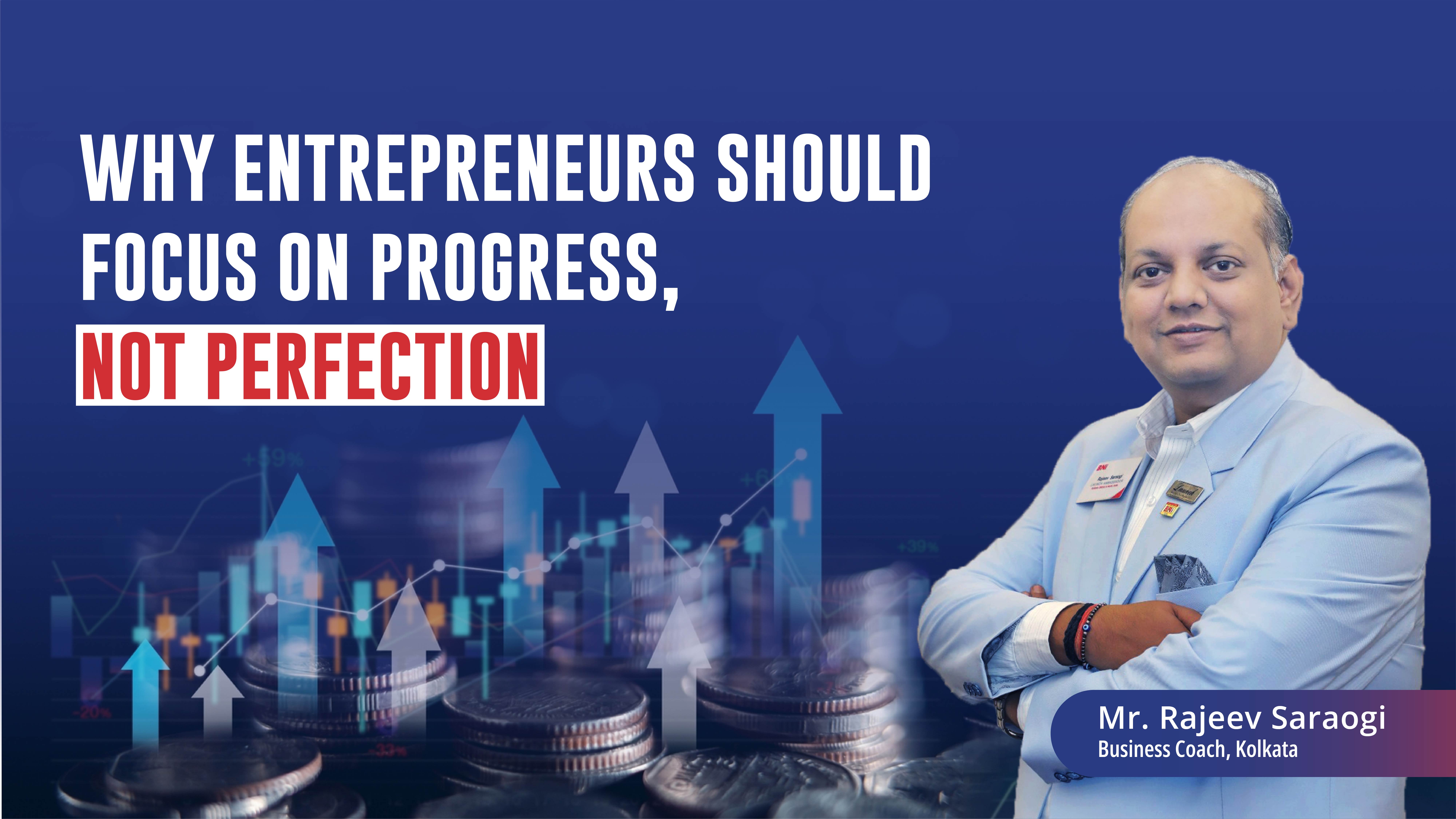
Why Entrepreneurs Should Focus on Progress, Not Perfection?
Entrepreneurs, especially those in the early stages of their journey, often find themselves caught in a dangerous trap — the pursuit of perfection. It's a mindset that feels logical on the surface. After all, who wouldn't want to build the perfect product, craft the perfect marketing plan, or assemble the perfect team before launching into the world? But underneath that desire for perfection often hides something far more dangerous: stagnation.
While entrepreneurs sit refining their ideas, tweaking their plans, and waiting for the "perfect time," others are out in the market learning, improving, and growing. And in today's fast-moving world, growth rewards the bold, not the flawless.
The Trap of Perfectionism in Entrepreneurship
The statistics are sobering: 92% of people are impacted by perfectionism in the workplace, with 86% of leaders reporting their work is negatively affected by perfectionist expectations. For entrepreneurs, the numbers are even more telling — 70% say perfectionism makes them procrastinate, causing them to hesitate on big decisions and miss opportunities while chasing unattainable standards.
Perfectionism isn't about high standards—it's often procrastination dressed up in professional clothes. It feels responsible. It feels ambitious. But in reality, it's fear. It's the fear of failing, of getting judged, or of putting something out into the world that doesn't yet match the grand vision in your head.
Here's the brutal truth: 75% of perfectionists hesitate to make big decisions, often becoming stuck and missing chances for growth due to fear of making mistakes. And perhaps most damaging of all, a meta-analysis of 95 studies found no evidence that perfectionists perform better or produce higher-quality work. Instead, their high standards add unproductive time, increase stress, and lead to burnout and dissatisfaction.
No major business started fully polished. Amazon didn't begin as the everything store—it was just a basic online bookstore. Facebook didn't launch with all the features we now associate with it; it started as a simple social network for college students. Airbnb's first listings weren't luxury apartments—they were spare air mattresses on living room floors. None of them waited until everything was ideal. They began, learned, adapted, and improved along the way.
Introducing the Minimum Viable Progress Mindset
Most entrepreneurs have heard of the MVP—the Minimum Viable Product—a concept popularized by Eric Ries in The Lean Startup. But beyond products, there's an even more valuable principle for entrepreneurs: Minimum Viable Progress.
This isn't about what you launch; it's about how you think. It's a mindset built around moving forward imperfectly, even if progress comes in tiny, almost unnoticeable increments. Instead of focusing on the ultimate goal, it shifts your attention to the next step. What can you do today, right now, that moves the needle just a little? It might be imperfect. It might be small. But it's motion. And motion beats paralysis every time.
Why Progress Beats Perfection Every Time
The real power of Minimum Viable Progress is that it compounds. Small efforts, done consistently over time, build into major outcomes. In marketing and startups, focusing on progress over perfection leads to faster learning, adaptability, and often exceeding goals in the long run. Starting with "good enough" (e.g., 80% ready) enables quick iteration and real-world feedback, which is essential for entrepreneurial success.
Execution always beats ideation. The world is full of brilliant ideas. Most of them never see the light of day because the people holding them hostage are waiting for the perfect time to launch. Business success doesn't go to the person who thought of it first. It goes to the person who acted on it first.
Perfectionism reduces effectiveness by causing stagnation and limiting the ability to learn from mistakes, which is crucial for innovation and business growth. Meanwhile, perfectionism is linked to chronic procrastination, burnout, anxiety, and even depression—all of which can sabotage entrepreneurial ventures by draining energy and stifling creativity.
The Freedom of Imperfect Action
There's a unique kind of confidence that comes from letting go of perfectionism. When you embrace the mindset of Minimum Viable Progress, you stop waiting for the stars to align before you act. You understand that failure is just feedback. Mistakes become learning tools. Small wins become building blocks.
This approach is especially powerful for solo entrepreneurs and startups who don't yet have large teams, investors, or major resources behind them. Waiting for the "perfect" conditions is a luxury most early-stage businesses cannot afford. But progress? Progress is free. It's just waiting for you to start.
Conclusion: Progress or Perfection — You Choose
Entrepreneurs often feel that the world rewards those with the best products, the best websites, or the most polished strategies. It doesn't. The world rewards those who move, who adapt, and who learn as they go.
Minimum Viable Progress isn't just a tactic; it's a leadership mindset. It's the decision to trade perfection for momentum. It's the choice to show up today, even if your work is imperfect, because imperfect work improves, while perfect plans gather dust.
Execution over hesitation. Movement over overthinking. Progress over perfection.
That's how businesses are built.
